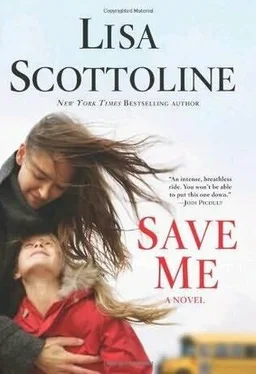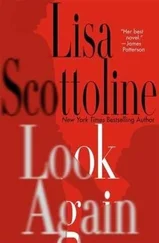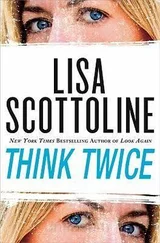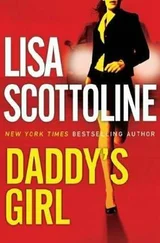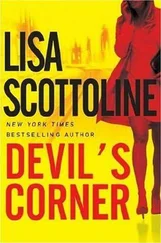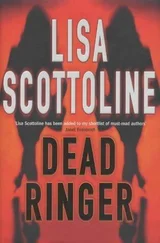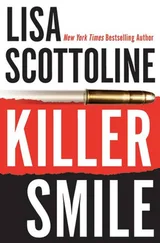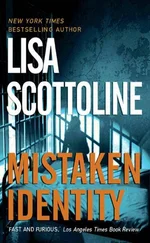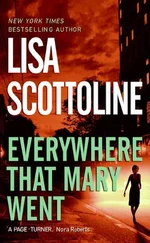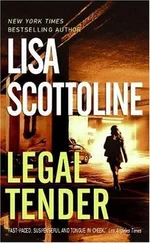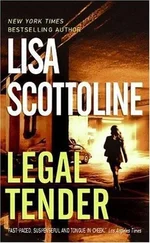Oliver leaned back in his chair. “First, don’t look so worried. You’re in excellent hands with us. We’re smarter than we look. At least I am.”
“Good.” Rose shifted John onto her lap, and he leaned backwards, lying in the crook of her arm and gazing up at her, in his sweet way.
“Let me lay out the criminal side for you. Under Pennsylvania law, specifically 18 Pa.C.S.A. Section 301(b)(2), criminal liability can be imposed for an act, or for the failure to perform an act, when one is imposed by law.” Oliver spoke with authority and confidence. “In other words, you’re not criminally liable for an omission, unless your duty to act is imposed by law. Understood?”
“Yes.”
“There are circumstances in which adults do have a duty to a child imposed on them, and one such time is when there is a ‘status relationship’ to the child.” Oliver made quote marks in the air. “Parents, for example, have that duty to their children, merely by virtue of their status. Make sense?”
“Yes.” Rose glanced at John, and he was dozing off, sucking away.
“Now, the duty isn’t only for parents. It can apply to anyone in control and supervision of a child, like a babysitter, a day-care worker, or a boyfriend or girlfriend who lives with the child. In Pennsylvania, that was established in the Kellam case.”
Rose nodded.
“If someone can be said to have assumed a status relationship to the child, that forms a basis for criminal liability, in this and most other jurisdictions.”
“Like being lunch mom?”
“Yes, exactly, and many other volunteer situations in schools, volunteers in the library, computer lab, music room, also coaches and chaperones on field trips.”
“Really?”
“Yes.”
“Jeez.” Rose considered the implications, with dismay. “You mean if anybody in one of those situations screws up, they can be charged with a crime?”
“Let’s not speculate that broadly. To be precise, all of those situations are fraught with liability, not only civil but criminal.”
Rose had had no idea. She smoothed John’s hair into place, but had the feeling she was comforting herself again.
“To digress, every summer, I’m asked to speak to baseball coaches. The first hour they have a doctor tell the coaches-all parents, like you-about medical care in case of emergency. Then, the second hour, I advise them to forget everything they just heard. I tell them that the only thing they should do in an emergency is call 911. That’s it. Period.”
“Why?”
“Because they could incur civil and criminal liability, otherwise.”
Rose thought it was awful that they’d come to this point, as a civilization. It was hardly civilized. “Does criminal liability mean go to jail?”
“Not always, but usually.”
“Am I going to jail?” Rose asked, her heart in her throat, but Oliver held up a hand.
“Wait. Stop. Don’t get ahead of us, please. When you became a lunch mom, you arguably assumed such a status relationship to the children.”
“‘Arguably’? What does that mean?”
“It means that if I were to represent you, we’d argue you didn’t, but it’s a tough argument to win, and criminal liability arises under Kellam when you have prevented others from rendering aid.”
“But I didn’t do that.”
“Yes, you did. You just told us you kept the girls in the cafeteria after dismissal to recess.” Oliver’s gaze was direct, yet without judgment, behind his tiny glasses. “They couldn’t go outside where there were teachers and others to help them. Then the other lunch mom, Terry, left.”
“That was her decision.” Rose shook her head. “I didn’t want her to go.”
“True, but that’s not legally significant. At the point at which she leaves to tell Mrs. Snyder, you detained the children and put them in a position where they couldn’t be helped by others. Then, the D.A. will say, you failed to adequately help them, under Kellam. And it doesn’t help that there’s a suggestion your actions were motivated by dislike for Amanda, since she teases Melly.”
Rose felt her stomach twist. “Can you contact Emily and her parents, or Danielle and hers, and try to get the facts? They can say I took them to the door.”
“We’ll try but they won’t talk to us, I’m sure. If they’re thinking of suing you or the school, they won’t be permitted to talk to us.”
Rose nodded. She should have known. It was a nightmare, replayed. They’d never get the truth now. Justice would be kept at bay by the lawyers.
“In addition, under Kellam, their testimony can hurt you. The kids will say you had them in time-out, yelling at them. One of them cried, right?”
“Yes,” Rose admitted, miserable.
“ Kellam is a bad case for you, though the facts are very different. Mr. Kellam was a child abuser.”
“How long did he go to jail for?”
“Ninety to 240.”
“Days?”
“Months.”
Rose gasped. “That’s twenty years!”
Tom pursed his lips, and Oliver held up his hand, again. “Look, there’s nothing saying you’ll be charged.”
“How do we know if I’ll be charged?” Rose felt panicky. “Who decides?”
“The D.A.”
“So can we ask him what he’s going to do?”
“No. Better to wait and see-”
“But this is my life, and the uncertainty is awful!”
“The uncertainty is better than provoking him. Keep your eye on the ball. We want this to blow over. The D.A. will be hard pressed to charge a pretty mommy with a crime, unless public pressure is too great not to do so. Lucky for us, it’s not an election year.”
Rose wasn’t feeling so lucky. “If they charge me, do they arrest me?”
“We’d ask for bail, and we’d get it. You’re not a flight risk.”
Rose’s mind reeled. Bail. Arrest. Flight risk.
“Also there’s a separate statute, for criminal endangerment of a child, that we need to worry about.” Oliver turned to the laptop and hit a few keys. “The criminal endangerment statute provides that a parent or guardian or ‘other person supervising the welfare of a child’”-Oliver made quote marks again-“may be criminally liable for endangering the welfare of the child. And the Pennsylvania Supreme Court, in the Gerstner case, has interpreted the term to include babysitters and others who have ‘permanent or temporary custody of the child.’” Oliver turned back to her, his gaze steady. “Much of this jurisprudence evolved under child abuse law, which is clearly not this case, but the law is the law.”
“So how does that apply to me? As you said, I’m no child abuser.”
“Of course not.” Oliver leaned over. “But again, not legally significant. You were in supervision, it was exclusive, and you didn’t take the kids all the way to the playground. I don’t blame you, but that’s not the point.”
Rose couldn’t believe her ears.
“Assume the facts that they have are true, namely, that you chose your child over the others, abandoning Amanda and the other two. That’s straight-up endangerment.”
“But that’s not what happened.”
“I know, but that’s a matter of proof. They’ll have to prove their set of facts, and even though we don’t technically have the burden, we’ll have to prove ours. Now, is there surveillance videotape in the cafeteria or elsewhere in the school?”
Rose hadn’t thought of that. “I don’t know, I doubt it. They videotape on the buses. Melly doesn’t take the bus.”
“Understood.” Oliver nodded. “The D.A. will need more information to charge you, and they’ll try to get it, in the days to come. If one of the assistant D.A.s calls you or drops by, say nothing and call me. In the meantime, say nothing to anybody about this case. Don’t talk about it at all. Understand?”
Читать дальше
